Early Help

What is Early Help?
Early Help is not a designated team; it is the way that everyone works together to support the needs of families.
The aim of Early Help is to build on people’s capacity and resources to manage their own dilemmas, resolve their own difficulties and prevent further problems in the future. Early Help is the response offered by all services in North Yorkshire who are in contact with children, young people and families when an unmet need is identified as outlined in Working Together to Safeguard Children (2018).
For a further explanation of what Early Help is in North Yorkshire, we have put a helpful video together:
North Yorkshire’s Early Help Strategy (2019) further outlines what Early Help looks like and how the approach works across the county, click below to view the strategy:
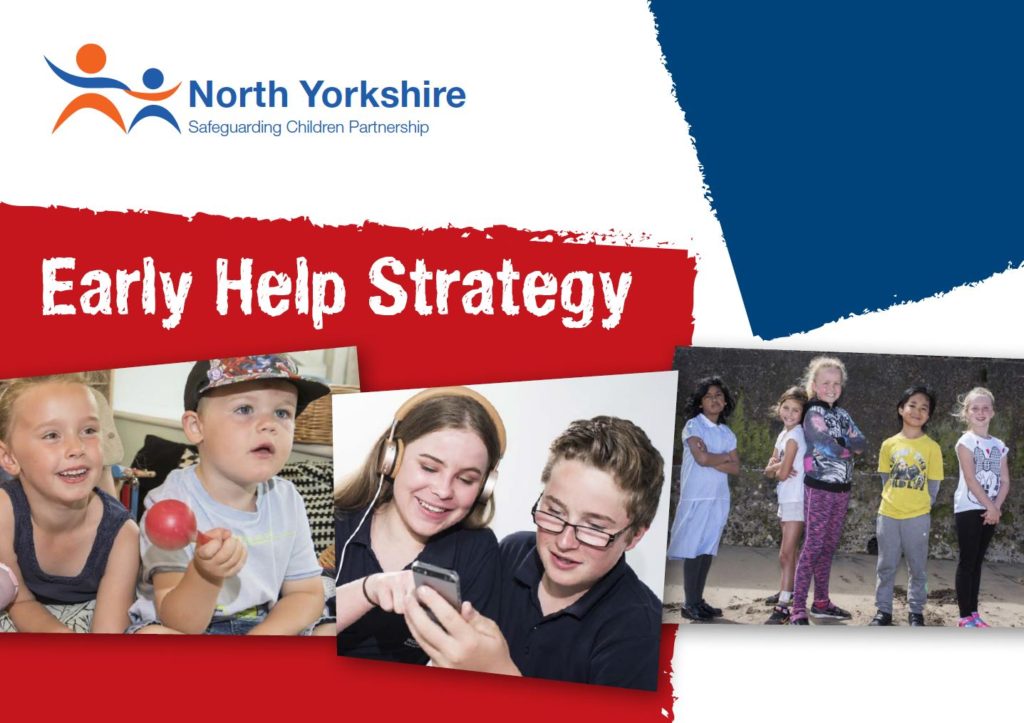
Early Help in North Yorkshire
In the early stages of emerging need, the most appropriate person to offer support is often the person who knows the child and family the best. This can be a person from any agency.
To support this process, are nine Locality North Yorkshire Council (NYC) Early Help Consultants based across North Yorkshire. Their role is to offer support, advice and guidance to all Practitioners in the early help system.
The Early Help Assessment is a strengths based assessment tool which can be used by all Practitioners in North Yorkshire to assess the individual needs of a child and their family.
An Early Help Assessment must be completed with a child and their family, this enables the practitioner to understand what is already working well within the family network and what support is already in place whilst identifying worries and any unmet need, enabling the right support to be put in place.
Once the assessment is completed the practitioner discusses with the family what steps need to be taken to support their identified need, agreeing whether the support can be met by the Practitioner and their single organisation or if other services are required. If other services are required, the Practitioner (sometimes known as Early Help Champion or Lead Practitioner) can coordinate a Team Around the Family meeting (sometimes abbreviated to a ‘TAF’ Meeting).
The practitioner, on behalf of the child, young person or family, will coordinate the Early Help Assessment and plan. This is intended to provide the family with the right plan at the right time, which if offered at an early enough point can prevent difficulties from escalating and have a hugely positive impact.
A Team Around the Family meeting engages effectively with the family and relevant professionals to produce a plan of coordinated support that enables a child or young person and their family to achieve agreed outcomes within specified timescales.
Prior to calling a TAF meeting, the Practitioner who has completed the assessment should contact one of their locality Early Help Consultants to ensure that the family are not already open to Children and Families Service and that a plan is not already in place. The consultant will provide this information and also advise the Practitioner of the next steps.
The completed Early Help Assessment form can be used to request additional support from Children and Families Service where it is identified that there is an unmet need and targeted support for families is required. Practitioners are required to discuss the assessment with the Early Help Consultant. It may be useful to refer to the Framework for decision-making: Right help, at the right time by the right person (Threshold Document) to aid these discussions.
Practitioners must complete the Early Help Assessment with the family, record as much information as possible and ensure consent is gained from the family to make the referral. Any gaps in information may lead to delay, or result in requests being returned.
The Universal Referral Form will continue to be available to use, but where there is an early help assessment in place you are able to use this form to refer instead to avoid duplication.
If there is an immediate safeguarding concern the Universal Referral Form should be used. For further guidance on what do to if you are worried about a child and to access the Universal Referral Form, see here.
Early Help – Central
Selby, Hambleton, Richmondshire
01609 534829
earlyhelpcentral@northyorks.gov.uk
Early Help – West
Harrogate, Knaresborough, Ripon, Craven
01609 534842
earlyhelpwest@northyorks.gov.uk
Early Help – East
Scarborough, Whitby Ryedale
01609 534852
earlyhelpeast@northyorks.gov.uk
Early Help Training

Following completion of this e-learning package you will:
– Recognise why Early Help is important
– Be aware of our collective responsibility for delivering Early Help
– Be confident signposting children / families and young people to the right service at the right time
– Be able to complete an Early Help Assessment (EHA)
Access online for free here.
Early Help Resources
A number of Early Help resources have been developed as part of the Early Help Strategy these include:
Approaches which help to deliver Early Help
Strength In Relationships is the practice model colleagues within North Yorkshire Council Children & Families Service have identified as the model of practice to aim towards when supporting children, young people, their family and network.
NYC are intending to offer briefings and have future conversations with partners as to how Strength In Relationships can be embedded within their respective agencies.
The download a flowchart of how the Strength In Relationships Model works, click below:
– https://www.safeguardingchildren.co.uk/wp-content/uploads/2023/02/88046-NYC-Assets_Children-and-Families-Strength-in-Relationships-Practice-Model.pdf
For further information in relation to the model, please contact Jo Miles (Practice Lead, NYC Quality of Practice Team) – joanna.miles@northyorks.gov.uk
The Ladder of intervention has been developed to support schools and settings in adopting the requirements within Working Together to Safeguard Children (2018), the DFE Exclusion Guidance (2018), the Code of Practice (2016) and the North Yorkshire Early Help Strategy (2019).
It aims to support schools in adopting early intervention for children with Social Emotional Mental Health (SEMH) and/or at risk of exclusion. This will include children with a range of vulnerabilities including children and young people with Special Educational Needs (SEND), pupils in receipt of free school meals (FSM), Gypsy Roma Traveller (GRT) children, and others eligible for pupil premium including looked after (LAC) or previously looked after children.
To download a copy of the Ladder of Intervention, click below: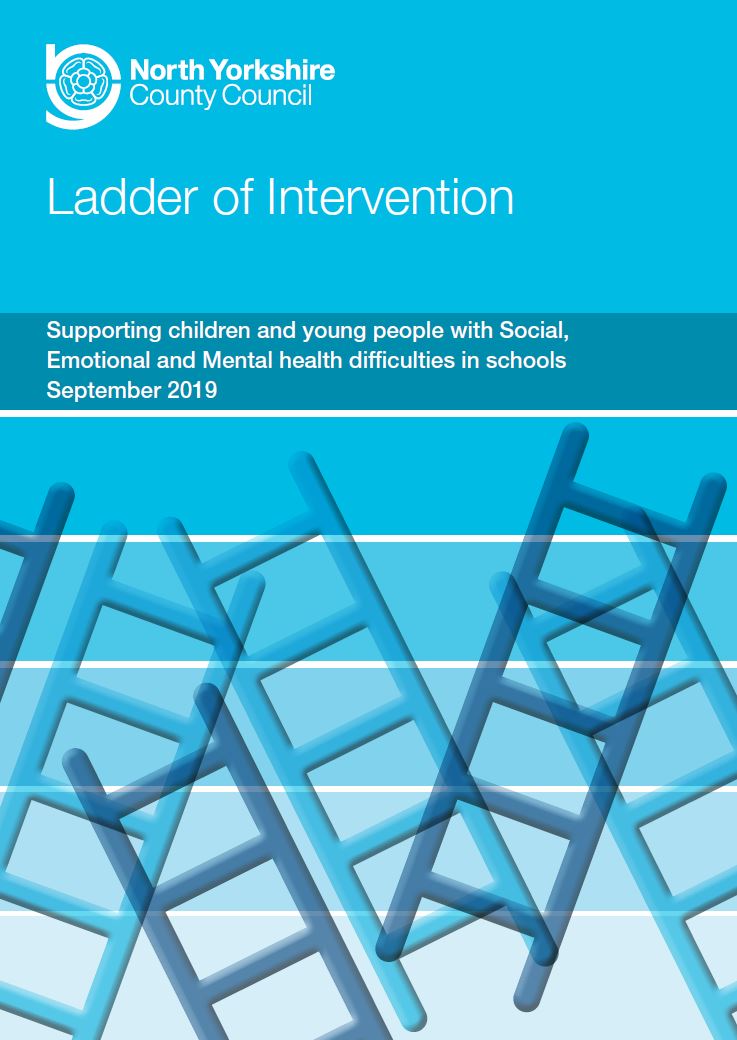
Signs of Safety helps to look for the strengths and the safety that already exists within families, and to harness and build on these, offering support where deficits and needs are identified. This is the essence of the Early Help approach in North Yorkshire.
Signs of Safety also helps to focus on the voice of the child as an agent of change. There are various tools which can be used within the Signs of Safety approach, the ‘Three Columns’ / ‘Three Houses’ tool is widely adopted in North Yorkshire and enables practitioners to record the conversations they are having with a child and family in relation to what is working well, what is a concern, and what the next steps need to be. This information will help to complete an Early Help Assessment form.
To download a copy of the ‘Three Houses’ template, click below: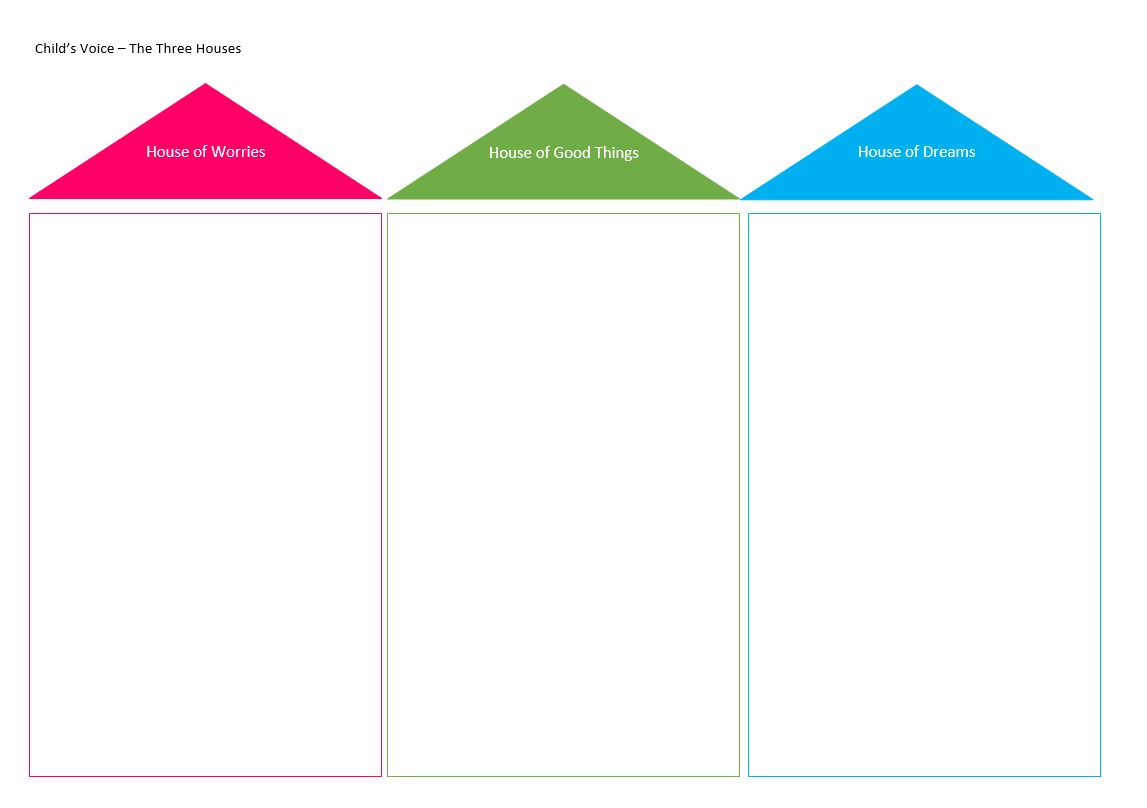



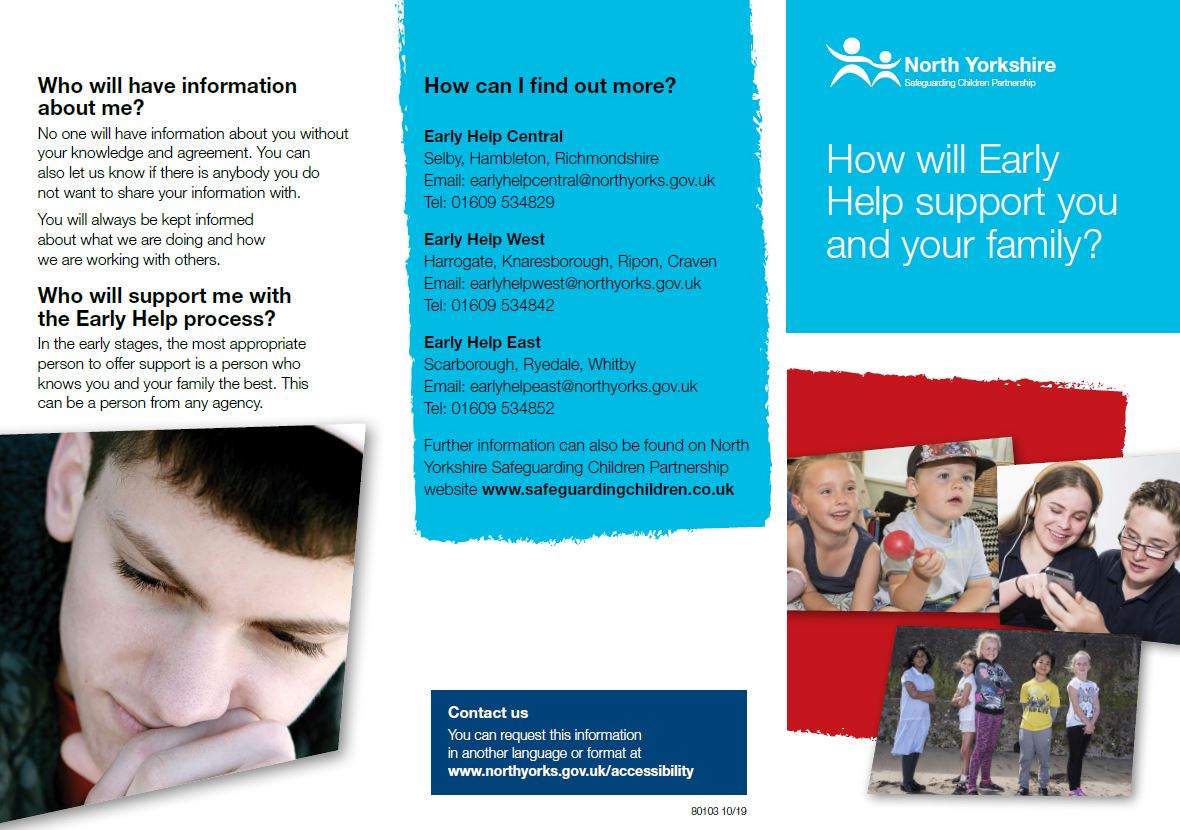
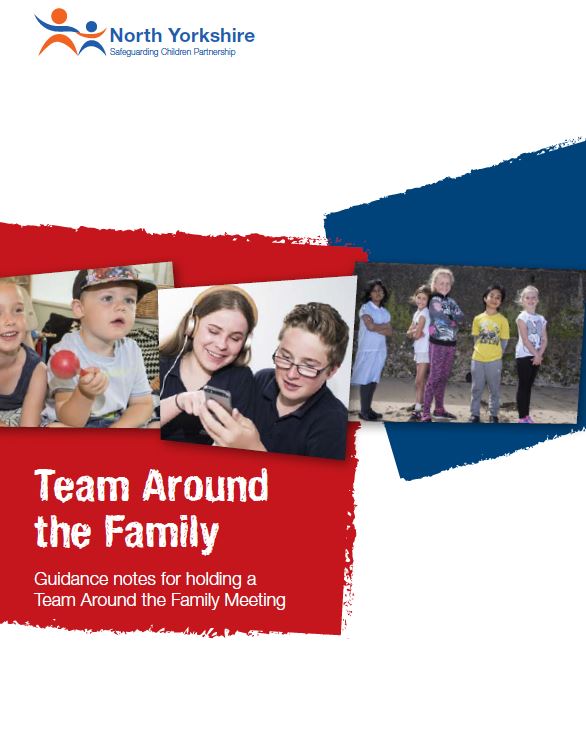
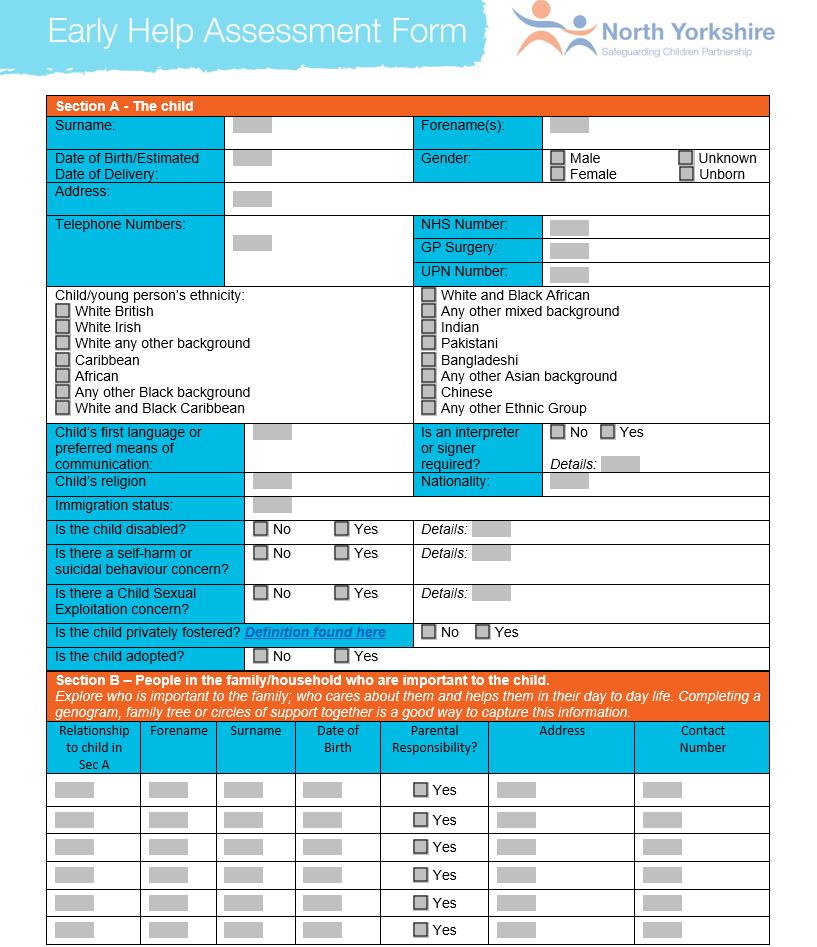
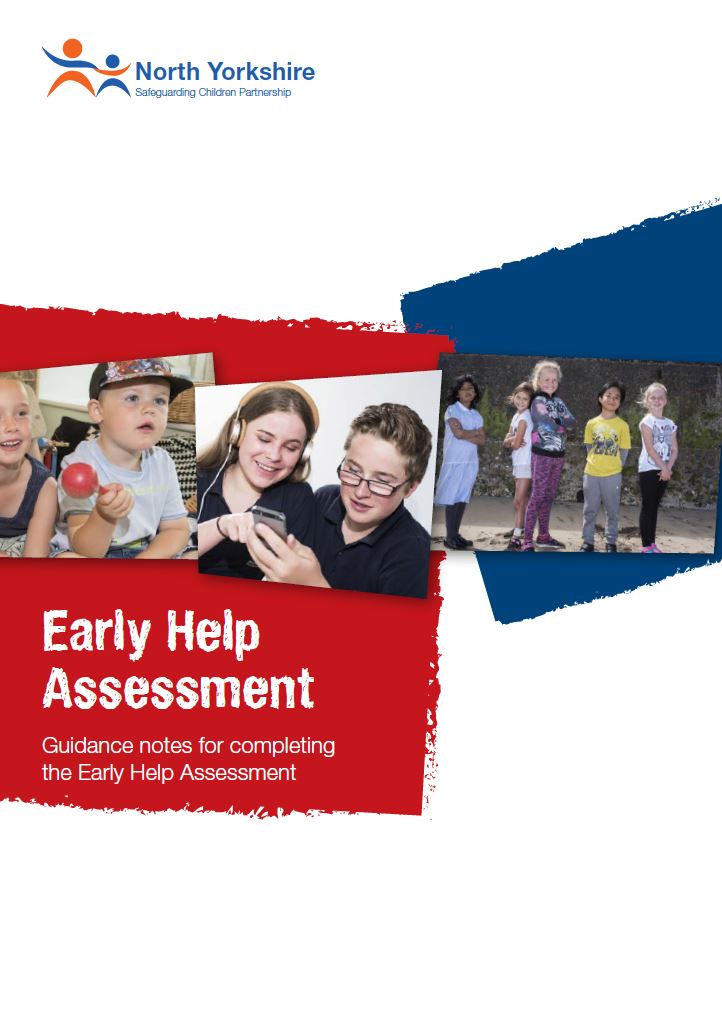
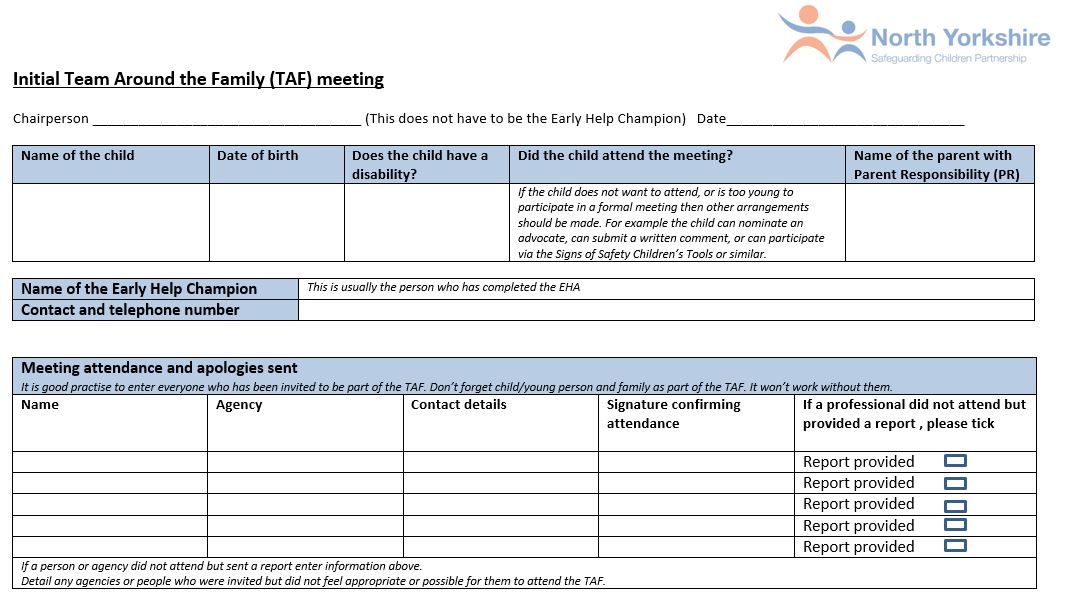
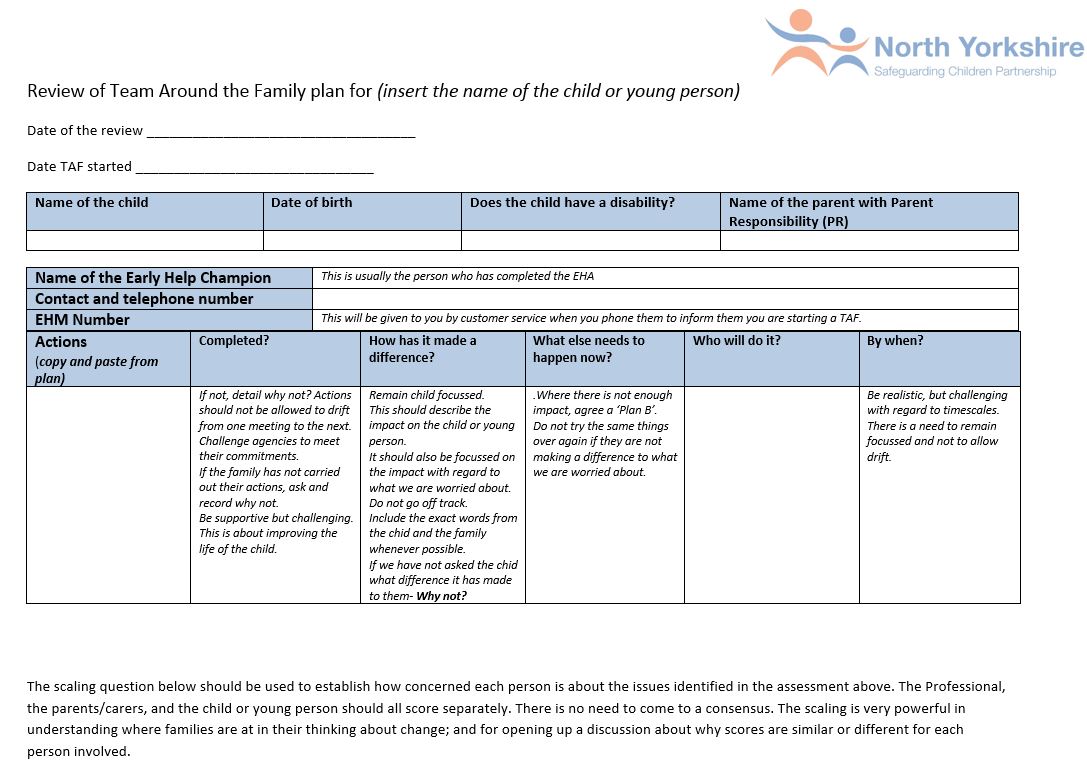
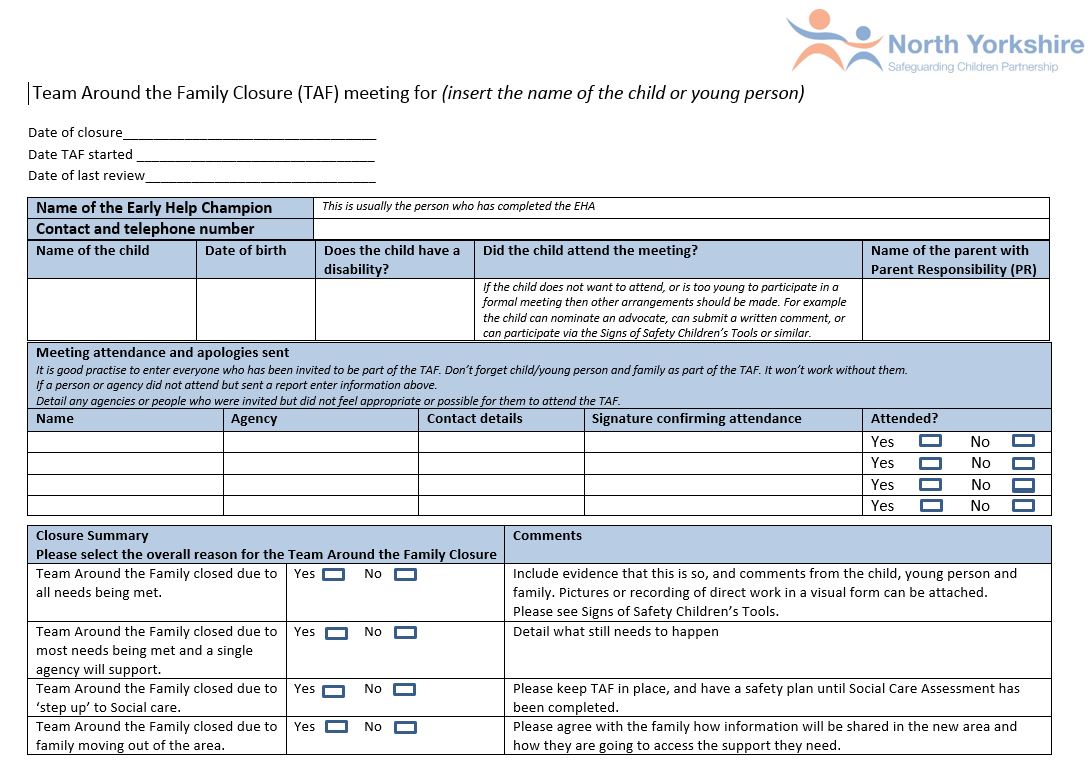
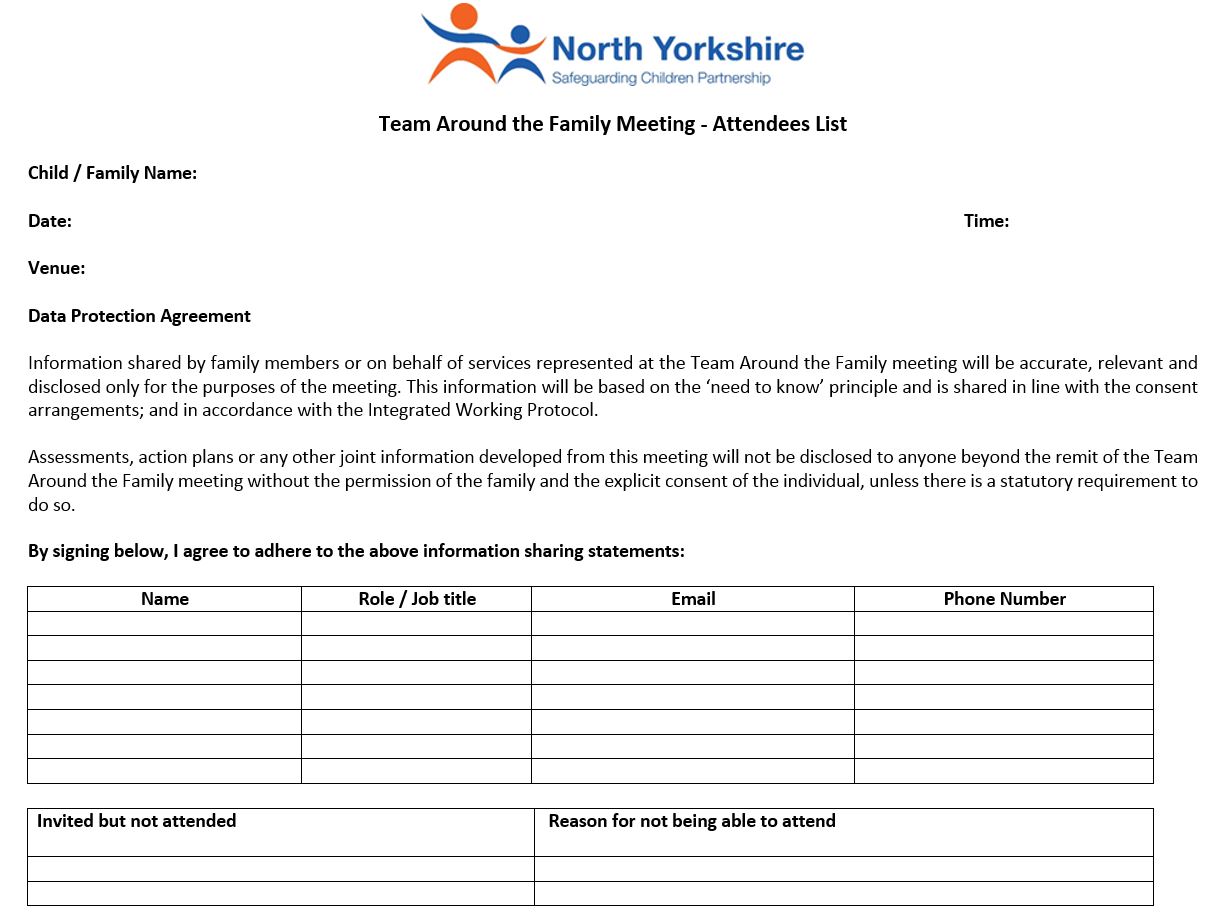


 View all our news
View all our news